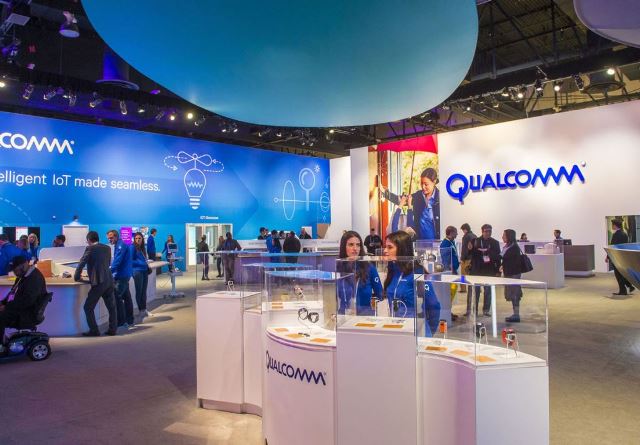The European Commission on Thursday announced a fine of 242 million euros or $272 million on Qualcomm, the world’s no.1 chipmaker, for blocking a rival from the market about a decade ago.

This is the second EU antitrust penalty on Qualcomm. The Commission fined Qualcomm 997 million euros or $1.1 billion last year for paying iPhone maker Apple to use only its chips, a tactic aimed at taking on rivals including Intel.
The European Commission said Qualcomm sold 3G baseband chipsets below cost, with the aim of forcing its competitor Icera out of the market.
Qualcomm had approximately 60 percent share — almost three times the market share of its biggest competitor.
Qualcomm sold certain quantities of three of its UMTS chipsets below cost to Huawei and ZTE, two important customers, with the intention of eliminating Icera, its main rival at the time in the market segment offering advanced data rate performance.
Qualcomm’s conduct had a significant negative impact on Icera. US tech company Nvidia in May 2011 acquired Icera. Nvidia decided to wind down its baseband chipset business line in 2015.
The €997 million fine imposed in January 2018 was for abusing its market dominance in LTE baseband chipsets by making significant payments to Apple, a key customer on condition that it would not buy from rivals.
European Commission’s Directorate General for Competition, after a 10-year investigation, found that Qualcomm engaged in predatory pricing practices for some sales of three cellular baseband chipsets to two customers during a few calendar quarters between 2009 and 2011.
Qualcomm said it plans to appeal the finding to the General Court of the European Union. It intends to provide a financial guarantee in lieu of paying the fine while the appeal is pending.
The fine amounts to 1.27 percent of Qualcomm’s turnover in 2018.
“The Commission spent years investigating sales to two customers, each of whom said that they favored Qualcomm chips not because of price but because rival chipsets were technologically inferior” said Don Rosenberg, executive vice president and general counsel of Qualcomm.
The European Commission, the EU’s competition regulator, accused Qualcomm of predatory pricing between 2009 and 2011 aimed at forcing out British phone software maker Icera, now part of Nvidia.
“Qualcomm’s behavior prevented competition and innovation in the market,” Competition Commissioner Margrethe Vestager said in a statement.
She, addressing a press conference, later defended the time it had taken to reach a decision – the Commission first accused the company of predatory pricing in 2015 – saying it had been a complex case that depended on evidence from Qualcomm.
The Commission is investigating Broadcom, another U.S. chipmaker, over whether it hampers rivals. Vestager said the Commission may impose interim measures, which are typically warnings to change behavior, in early autumn.
Qualcomm in May lost an antitrust lawsuit brought by the Federal Trade Commission, with the judge issuing a sweeping antitrust ruling against the chipset company.
Baburajan K





